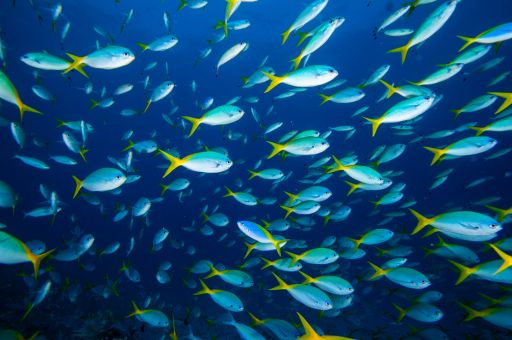The councillor Joan Simonet took advantage of the 37th meeting of the Fisheries Council, which was chaired by Miquel Socias and attended by the director general of Fisheries, Antoni M. Grau, to recall that ‘since 2017, no money from the Sustainable Tourism Tax has been invested in the fisheries sector’.
The Ministry of Agriculture, Fisheries and the Natural Environment today hosted the 37th meeting of the Balearic Islands Fisheries Council, the main collegiate advisory body on maritime fisheries in the Balearic Islands. This meeting was chaired by Miquel Socias and was attended by the councillor Joan Simonet and the director general of Fisheries, Antoni M. Grau. In this regard, it should be remembered that the composition of the Fisheries Council reflects a broad representation of the sector and includes members from the island councils, the Directorate General of Ports and the Port Authority of the Balearic Islands, as well as representatives of the fishermen’s guilds of the Balearic Islands, the Balearic Federation of Fishing and Casting, the Balearic Federation of Underwater Activities, the fishing producers’ organisation Opmallorcamar and the Association of Fishermen of the Balearic Islands.
TDB keeps you informed. Follow us on Facebook, Twitter and Instagram
The Regional Ministry of Agriculture, Fisheries and the Natural Environment announced during the Fisheries Council that it will allocate 2.5 million euros of ITS funds to the sector to increase, among other things, the means of surveillance in Marine Reserves
During the event, the Regional Ministry presented several sectoral regulatory initiatives, as well as the results of studies by groups of experts. In addition, the councillor Joan Simonet took the opportunity to announce that 2.5 million euros – 2,446,500 euros – from the Sustainable Tourism Tax (ITS) will be allocated to the sector as part of a project called Blue Economy: new management tools. ‘It should be remembered that no money from the ITS has been invested in the sector since 2017. This commitment reaffirms the Government’s commitment to the Islands‘ fishing industry, its profitability and sustainability,’ explained Simonet. In this sense, this Blue Economy project includes an increase in means of surveillance and control in marine reserves – for example, the acquisition of two surveillance boats, one for the new Ponent reserve and another for the Pollença area to control the future management plan for the bays in the north of Mallorca; more investment in technology – such as the purchase of drones, radar and electronic sensors for the fisheries monitoring programme that will be developed with the IMEDEA to monitor management plans – and more budget for the acquisition of green boxes, among others.
In terms of regulations, information was provided on the draft decree that modifies the Pluriinsular Management Plan for Fishing with Traditional Fishing Gear and the Management Plan for Professional Artisanal Fishing in the Pitiusas Islands. In addition, the drafting of a simplification decree on fishing and diving management has been discussed.
The draft decree for the creation of the Ponent de Mallorca Marine Reserve and the Artisanal Fishing Management Plan for the Inland Waters of the Bays of Pollença and Alcúdia were also reported on. In this regard, the Director General of Fisheries, Antoni M. Grau, stated that ‘the initiative of the fishermen of the north of Mallorca demonstrates their willingness to get involved in the sustainable management of fishery resources and the importance that the sector is gradually giving to co-management’.
The Fisheries Council also analysed the repercussions of the recent modifications to the Common Fisheries Policy control regulation, highlighting the progressive implementation of geolocation and the digital register of catches for the professional fishing fleet, as well as the electronic declaration of catches for recreational fishing, with a view to implementation by 2030. In addition, the conclusions of the first meeting of the group of experts on elasmobranchs and the Commission for Co-management of Recreational Fishing in the Balearic Islands were presented.
The session concluded with a question and answer session, in which the attendees were able to express their concerns and proposals, thus contributing to enriching the debate and defining future lines of action in favour of the fishing sector and the conservation of marine resources in the Balearic Islands.
